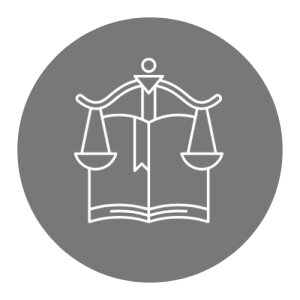Best Civil Litigation Lawyers in Bangkok
Share your needs with us, get contacted by law firms.
Free. Takes 2 min.
List of the best lawyers in Bangkok, Thailand
Legal guides written by Smart Legal Solutions:
- Main Legal Measures to Protect Foreign Investment in Thailand
- The importance of the geographical indications for the Thai economy
Legal guides written by GPS Legal:
- Thailand’s SMART Visa program: What you should know
- Estate planning goes beyond wills
- Buying a condo in Thailand as a foreigner
Thailand Civil Litigation Legal Articles
Browse our 2 legal articles about Civil Litigation in Thailand written by expert lawyers.
- Defamation Laws in Thailand: Criminal Charges and Civil Suits
- In Thailand, defamation can lead to both criminal charges and civil lawsuits. If you're accused, you risk fines, jail time, or being ordered to pay compensation. If someone harms your reputation, you have the right to take legal action to defend yourself.This article explains what counts as defamation under Thai... Read more →
- How to Prepare for a Civil Case Lawsuit in Thailand: Civil Litigation Procedures
- Being involved in a civil case lawsuit abroad may be an unnerving experience, particularly if you are unfamiliar with the local legal practices and regulations. Whether you are a foreigner or a local citizen, understanding the Thai civil litigation system and being well-prepared is essential. We will walk you through... Read more →
About Civil Litigation Law in Bangkok, Thailand
Civil litigation in Bangkok, Thailand, involves the legal process where individuals or entities seek to resolve disputes and claims through the court system, particularly in non-criminal cases. This can include contract disputes, property matters, tort claims, and more. Civil courts in Bangkok handle these cases with specific procedures and requirements unique to Thailand's legal framework. The Thai legal system is based on civil law traditions, with laws primarily codified and not reliant on case law precedents. Civil litigation can be complex, and navigating the legal landscape in Bangkok requires an understanding of local practices and regulations.
Why You May Need a Lawyer
There are several situations where you may require legal help with civil litigation in Bangkok, Thailand. If you are involved in a contract dispute, such as a breach of contract or unfair terms, a lawyer can assist in drafting and enforcing contractual rights. Property disputes, involving issues like land ownership or tenancy disagreements, also frequently require legal counsel to resolve. Additionally, if you have suffered damages due to negligence or other wrongful acts, a lawyer can help in pursuing compensation through a tort claim. Navigating the Thai legal system without professional assistance can be challenging, making legal expertise vital in ensuring your rights and interests are protected.
Local Laws Overview
Local laws in Bangkok governing civil litigation are influenced by the Civil and Commercial Code of Thailand. This code sets forth rules on contracts, obligations, property, and torts. Procedural matters are governed by the Civil Procedure Code, which details how cases are filed, tried, and appealed. Understanding local laws also involves knowing about specific court jurisdictions, filing requirements, and timelines for litigation. Thailand's legal system emphasizes mediation and arbitration as dispute resolution methods, presenting alternatives to traditional court processes. Language barriers and legal complexities often necessitate hiring a bilingual or local lawyer to guide through the proceedings.
Frequently Asked Questions
What is the statute of limitations for civil claims in Bangkok?
In Thailand, the statute of limitations for civil claims varies depending on the type of claim. For instance, contract claims generally have a statute of limitations of five years, whereas tort claims usually have one year from discovering the damage.
How long does a civil litigation case typically take in Bangkok?
The duration of a civil litigation case in Bangkok depends on the case’s complexity and the court's schedule. It can range from several months to a few years. Mediation may expedite the process if both parties agree to it.
What are the potential costs involved in civil litigation?
Costs can include court fees, lawyer fees, and other legal expenses such as gathering evidence or expert witnesses. Fee structures may vary, with some lawyers charging hourly rates and others setting fixed fees or contingency arrangements.
Can I represent myself in a civil court in Bangkok?
While it is technically possible to represent yourself, it is generally not advisable due to the complexity of legal procedures and potential language barriers. Professional legal representation is strongly recommended.
What role do mediation and arbitration play in civil litigation in Bangkok?
Mediation and arbitration are encouraged as alternative dispute resolution methods to resolve civil matters efficiently. Thai courts often require parties to attempt mediation before proceeding to trial.
How can I enforce a court decision in my favor?
Once a court decision is final, enforcement can be pursued through judicial execution proceedings. This process ensures the losing party complies with the court's order, often involving seizing assets or other enforcement actions.
Is it possible to appeal a civil case judgment?
Yes, parties may appeal to a higher court if dissatisfied with the judgment. Appeals must follow specific procedural steps and be based on legal grounds, not merely disagreement with the outcome.
What should I do if I am sued in Bangkok?
Seek legal advice immediately to understand the charges and prepare your defense. Respond to the court summons within the stipulated time to ensure your right to defend in court.
Do civil courts in Bangkok use a jury system?
Thailand’s civil courts do not use a jury system. Instead, a judge or panel of judges decides the case based on the evidence presented.
What happens if a defendant does not appear in court?
If the defendant does not appear, the court may proceed with the trial in their absence and issue a default judgment, potentially leading to an unfavorable outcome for the absent party.
Additional Resources
For further assistance, consider reaching out to the Lawyers Council of Thailand, providing legal resources and guidance. The Ministry of Justice offers public legal services and information. Consulting local firms specializing in civil litigation or checking with the Thai Bar Association for referrals can also be beneficial.
Next Steps
If you need legal assistance in civil litigation, start by consulting a qualified lawyer in Bangkok who specializes in civil cases. Gather all relevant documents and evidence related to your dispute before meeting with legal counsel. Evaluate the lawyer's experience, fee structure, and communication approach to ensure they meet your needs. Once you've retained a lawyer, work closely with them to develop a strategy and follow court procedures diligently to safeguard your interests.
Lawzana helps you find the best lawyers and law firms in Bangkok through a curated and pre-screened list of qualified legal professionals. Our platform offers rankings and detailed profiles of attorneys and law firms, allowing you to compare based on practice areas, including Civil Litigation, experience, and client feedback.
Each profile includes a description of the firm's areas of practice, client reviews, team members and partners, year of establishment, spoken languages, office locations, contact information, social media presence, and any published articles or resources. Most firms on our platform speak English and are experienced in both local and international legal matters.
Get a quote from top-rated law firms in Bangkok, Thailand — quickly, securely, and without unnecessary hassle.
Disclaimer:
The information provided on this page is for general informational purposes only and does not constitute legal advice. While we strive to ensure the accuracy and relevance of the content, legal information may change over time, and interpretations of the law can vary. You should always consult with a qualified legal professional for advice specific to your situation.
We disclaim all liability for actions taken or not taken based on the content of this page. If you believe any information is incorrect or outdated, please contact us, and we will review and update it where appropriate.

















